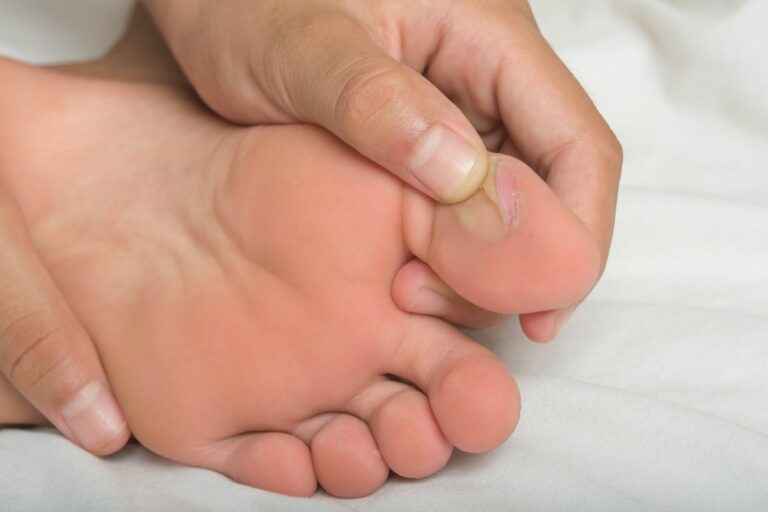How To Lower Heart Rate While Running: 5 Simple Strategies

So how to lower heart rate while running? A simple answer to our question is to work out for longer, allow yourself to rest and avoid coffee before you run.
If you’ve clicked on our page, you probably want more than a one-sentence answer.
Here we will explain why a low heart rate is good, the signs that your heart rate is too low, and we will give you real tips to reach the desired heart rate for your body.
Why Is A Low Heart Rate Good?
A low heart rate while you’re exercising is normally a sign of high physical fitness. This is because your body is used to intense workouts which in turn reduces the toxins in your bloodstream.
Through a healthy diet and regular exercise, your blood pressure will be low as your arteries are clear of debris and obstructions such as fat.
A low heart rate while exercising is a sign of a healthy heart that isn’t at risk of a stroke or heart attack.
Signs That The Heart Rate Is Too Low
While you work out you may be feeling out of breath or feel a strain in the muscles you are focusing on. This is normal as you work on your body.
However, if you become lightheaded or dizzy, find it hard to concentrate, become confused, or feel as though you may faint, then something is wrong.
This is a sign that your brain isn’t getting enough oxygen, which may be due to a slow heart rate not reaching the desired areas of the body fast enough.
If you notice these symptoms while exercising, then stop working out. Certain medical problems can cause this issue, including thyroid disease or simple aging.
Seek medical advice if you become lightheaded or if you develop faint or chest pain while running.
The Ideal Heart Rate For A Runner
So if a low heart rate is a sign of good health, but going too low is a sign of a medical issue, what is the best rate for a runner?
The American Heart Association created a chart to answer this question. It can give you a general idea of what your heart rate should be based on your age.
Instead of showing you the chart, we will show you the calculator. This way you can get an exact answer instead of a range.
The formula is 208 – (age x 0.7) = maximum individual heart rate.
This figure will tell you the maximum heart rate you should have for your age while running.
For the optimum, your heart rate should be half of this figure.
For example, if you are 25 years old, the formula should look like this:
- 208 – (25 x 0.7) = MIHR
- 208 – 17.5 = 190.5 Maximum Individual Heart Rate
- 190.5 / 2 = 95.25 Optimal Heart Rate
How To Reach A Lower Heart Rate While Running

If you can feel that your heart rate is too high while running, then you should add additional routines to your workout structures to help reduce the throbbing.
These routines will either be implementable while you run or in exercises outside of running.
1. The Talk Test
The talk test is the ability to talk easily while exercising. If you cannot talk with ease, it’s because you’re putting too much intensity on your oxygen flow.
Your body is putting all of its energy into getting oxygen to the high-functioning organs, so it doesn’t have enough left to allow you to speak easily.
To decrease your heart rate slow down your pace until you can talk with ease. As you get stronger, you will be able to do more while talking. When this happens, you know you have a lower active heart rate.
2. Learn Deep Breathing Techniques
Breathing from your diaphragm allows you to take in more oxygen per breath than simply breathing through your nose.
To breathe from your diaphragm, you need to focus on your chest and feel your lungs expand as you take in the air.
Doing this slowly after a run or during a moment of rest can help you reduce your heart rate and blood pressure.
3. Keep Hydrated And Avoid Caffeine Before Your Run
Caffeinated drinks such as alcohol, tea, coffee, or nicotine supplements will cause you to dehydrate while at the same time stimulating your heart into acting faster. This will put stress on your body before you begin your run.
If you need to drink coffee as part of your morning routine, make sure to drink 6 to 8 ounces of water every 20 minutes or so while you exercise.
This should counteract the dehydration caused by the caffeine, but it will not prevent the additional stress caused by the beverage’s stimulation side effects.
4. Add A Variety Of Aerobic Fitness To Your Workout
Running is already an aerobic activity, as this category includes any sport or workout that increases your heart rate and your breathing.
However, as with anything you want to improve on, you need to focus on more than one activity to produce real change.
Adding swimming, cycling, or even walking to your workout routine will allow your lungs and heart to experience strenuous activities in different capacities.
This will make your heart stronger overall, allowing your heart rate to remain lower or consistent throughout your run.
5. Run Longer Not Faster
Lastly to improve your heart rate you need to help your blood pressure find consistently while in a mildly stressful situation.
This means running at a gentle pace for a long time, to allow your body to consider this speed achievable.
Once you have mastered the talk test at this speed, you can go faster.
You can continue your strenuous workout by focusing on distance until you can reach the speed you desire.
The Bottom Line
To lower your heart rate while running, you need to avoid caffeine, run slowly, and breathe through your diaphragm.
Changing your routine to add in different aerobic exercises and creating longer rather than faster runs, will help towards your overall fitness goal.






